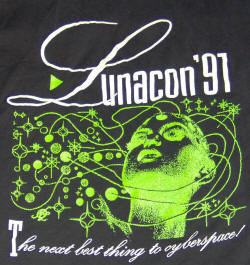Library Locality
Whoopsie
It's all over for the "local" library, at least insofar as the business of "lending" "books." CNN reports that owners of the Amazon Kindle, the most popular eBook reader, will now be able to check out books from the library.
Kindle users will have to check out books through their local libraries, so they will need a library account to use the service. To see if your library has a contract with OverDrive, and therefore will be able to loan you Kindle books, go to overdrivesearch.com and type in your ZIP code.
My "local" library hasn't been "local" for a long time. Although it has a building, shelves, books, employees, and the spectacular annual sale, it is also part of a county-wide network. If I want a book that a different county library has, my library can arrange a transfer and have it physically delivered for me to borrow. Of course, with physical books, there's a practical limit to this kind of exchange. A few rural libraries or maybe a full county will work. But it would be a challenge for even the smallest states, and impossible for larger regions. With an eBook*, there's no daily interlibrary van, it's all one internet.
If my library contracts with one in Bullhead City, AZ, to back each other up, no van is necessary. (Bullhead City, AZ, is just an example. It could as easily be Tulsa, OK. Or, by extension, every library in the world.) As long as there is even one eBook of a given title anywhere that isn't out on loan, I can "borrow" it from my local library if the right agreements are in place. In other words, there might as well be a national repository of eBooks. When eBooks become the preferred and eventually close to the only version of new books available, the main current mission of the local library will vanish.
If I were a library, I would be trying to "reinvent" myself. Need any sturdy, used shelves?
A New Sign of Desperation
Back to the present...
A library purchases a book and lends it to all comers. Some keep it for a few days, some a couple of weeks, it gets read, it gets returned, maybe it gets worn out or damaged. Of course, an eBook, when lent out by a library, is subject to the same terms: One reader at a time, and it must be "returned" (or expire) before anyone else can "borrow" it. But what about the wear and tear? An eBook never wears out, does it?
Ready?
HarperCollins Puts 26 Loan Cap on Ebook Circulations
In the first significant revision to lending terms for ebook circulation, HarperCollins has announced that new titles licensed from library ebook vendors will be able to circulate only 26 times before the license expires.
Is this putting a candle pictograph on a light switch or what? The Library Journal reports, less than joyfully, that OverDrive, a company that works with libraries to provide eBooks, has
been required to accept and accommodate new terms for eBook lending as established by certain publishers. Next week, OverDrive will communicate a licensing change from a publisher that, while still operating under the one-copy/one-user model, will include a checkout limit for each eBook licensed. Under this publisher's requirement, for every new eBook licensed, the library (and the OverDrive platform) will make the eBook available to one customer at a time until the total number of permitted checkouts is reached.
Stunning corporate greed? Self preservation? An indication that maybe the book publishing "business model" is in need of revision?
Yes.


